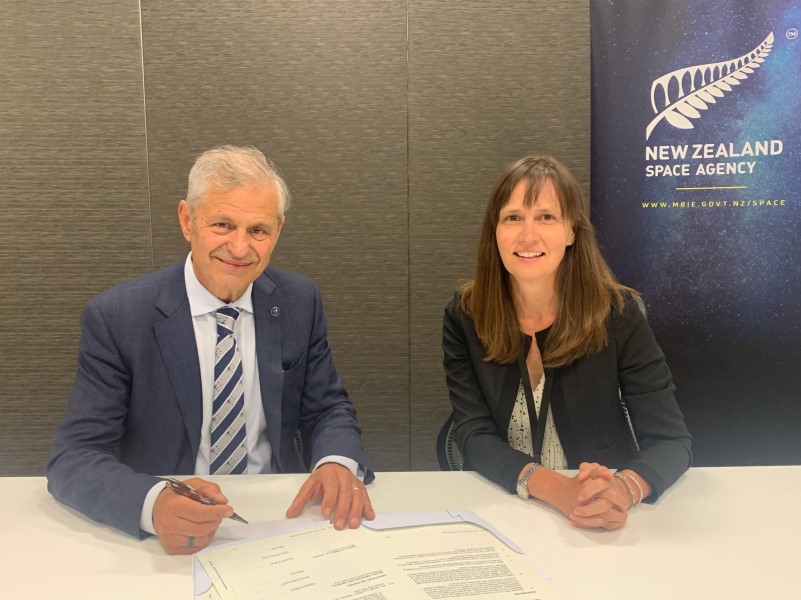Kiwi researchers will begin working with the Adelaide-based SmartSat Cooperative Research Centre on collaborative space projects following a AU$5.6 million commitment from the New Zealand government.
The funding, which comes out of the New Zealand government’s Catalyst Fund, is part of a memorandum of understanding (MoU) signed between the SmartSat Cooperative Research Centre (CRC) and the New Zealand Space Agency on Wednesday.
It will be accessible to New Zealand researchers, who will collaborate with SmartSat on new research initiatives in earth observation, space situational awareness, or optical communications, the CRC said.

The Australian Space Agency (ASA) worked with both SmartSat and the New Zealand Space Agency to help establish the agreement. ASA chief executive Enrico Palermo said the agreement “reaffirms [Australia’s] strong partnership with New Zealand”.
ASA and the New Zealand Space Agency signed an agreement to encourage a trans-Tasman space innovation ecosystem in 2019. The agreement included the establishment of a joint steering committee.
The 2019 agreement listed several priority space science, technology, and applications for collaboration, including the three areas supported by the SmartSat MoU.
A call for proposals under the MoU will open in the next few months with projects expected to commence in the second half of this year.
Earth observation projects will aim to use space data to support decision-making in fields such as biosecurity, crop health, emissions monitory, and maritime domain awareness. Meanwhile space situational awareness deals with improvements to monitor the orbital environment.
Projects in optical communications will investigate ways to coordinate Australasian optical ground stations to best support space exploration.
New Zealand’s Space minister Judith Collins said the collaboration agreement would deliver real benefits to New Zealanders.
“New Zealand has an innovative space sector. This partnership presents exciting opportunities for it to grow and thrive. It is also an opportunity to work together to solve trans-Tasman challenges,” Ms Collins said.
“Research enabled by this partnership will support our efforts to promote the safe and responsible use of space, make better use of aerospace enabled data in our primary industries and advance world-leading technology to improve communications.
“It builds on similar successful international space science partnerships with NASA and the German Aerospace Center.”
There are more than 135 Australian and international organisations participating in SmartSat research projects. This represents more than 400 researchers who are working on more than 150 research and development projects.
SmartSat CRC chief executive Professor Andy Koronios welcomed the agreement and highlighted the importance of the space sector for Australia and New Zealand.
“Earth Observation research plays a critical role in better understanding environmental challenges that pose significant risks to both our countries,” Professor Koronios said.
“The agriculture sector is crucial for both Australia and New Zealand, and improving sustainable practices through pasture mapping, human activity, and emission monitoring will be vital for current and future food security.”
Do you know more? Contact James Riley via Email.

